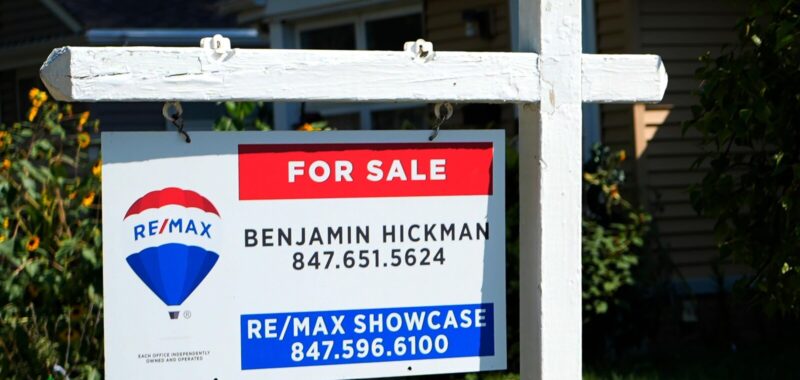The average rate on a 30-year mortgage in the U.S. fell this week to its lowest level in 19 months, reflecting a pullback in Treasury yields ahead of an expected interest rate cut from the Federal Reserve next week.
The rate fell to 6.20% from 6.35% last week, mortgage buyer Freddie Mac said Thursday. A year ago, the rate averaged 7.18%.
The average rate is now the lowest it’s been since February 12, 2023, when it was 6.12%.
Borrowing costs on 15-year fixed-rate mortgages, popular with homeowners seeking to refinance their home loan to a lower rate, also eased this week. The average rate fell to 5.27% from 5.47% last week. A year ago, it averaged 6.51%, Freddie Mac said.
Mortgage rates are influenced by several factors, including how the bond market reacts to the Fed’s interest rate policy decisions. That can move the trajectory of the 10-year Treasury yield, which lenders use as a guide to pricing home loans.
Signs of waning inflation and a cooling job market have raised expectations that the Fed will cut its benchmark interest rate for the first time in four years at its meeting of policymakers next week.
The yield, which topped 4.7% in late April, has pulled back sharply since then in anticipation of a Fed rate cut. It was at 3.68% in midday trading in the bond market Thursday.
“Rates continue to soften due to incoming economic data that is more sedate,” said Sam Khater, Freddie Mac’s chief economist. “But despite the improving mortgage rate environment, prospective buyers remain on the sidelines, as they negotiate a combination of high house prices and persistent supply shortages.”
After climbing to a 23-year high of 7.79% in October, the average rate on a 30-year mortgage has hovered around 7% for most of this year. That’s more than double what it was just three years ago.
The elevated mortgage rates, which can add hundreds of dollars a month in costs for borrowers, have put off many would-be homebuyers, extending the nation’s housing slump into its third year.
Sales of previously occupied U.S. homes are running below last year’s pace, though they ended a four-month slide in July as homebuyers seized on more attractive mortgage rates.
Despite the sales slump, home prices have kept rising, pushing the limits of what homebuyers can afford. The national median home sales price rose in July on an annual basis for the 13th month in a row to $422,600, just shy of the all-time high set in June, according to the National Association of Realtors.
Lower mortgage rates would help boost home shoppers’ purchasing power. But many economists’ forecasts call for the average rate on a 30-year home loan to remain above 6% this year.
“Prospective homebuyers expecting mortgage rates to drop dramatically after the Fed cuts rates will be disappointed,” said Lisa Sturtevant, chief economist at Bright MLS. “The impact of the Fed lowering short-term rates has already been largely baked into mortgage rates, which have been falling since early July. High home prices and a lack of supply continue to be driving affordability challenges in the market.”

